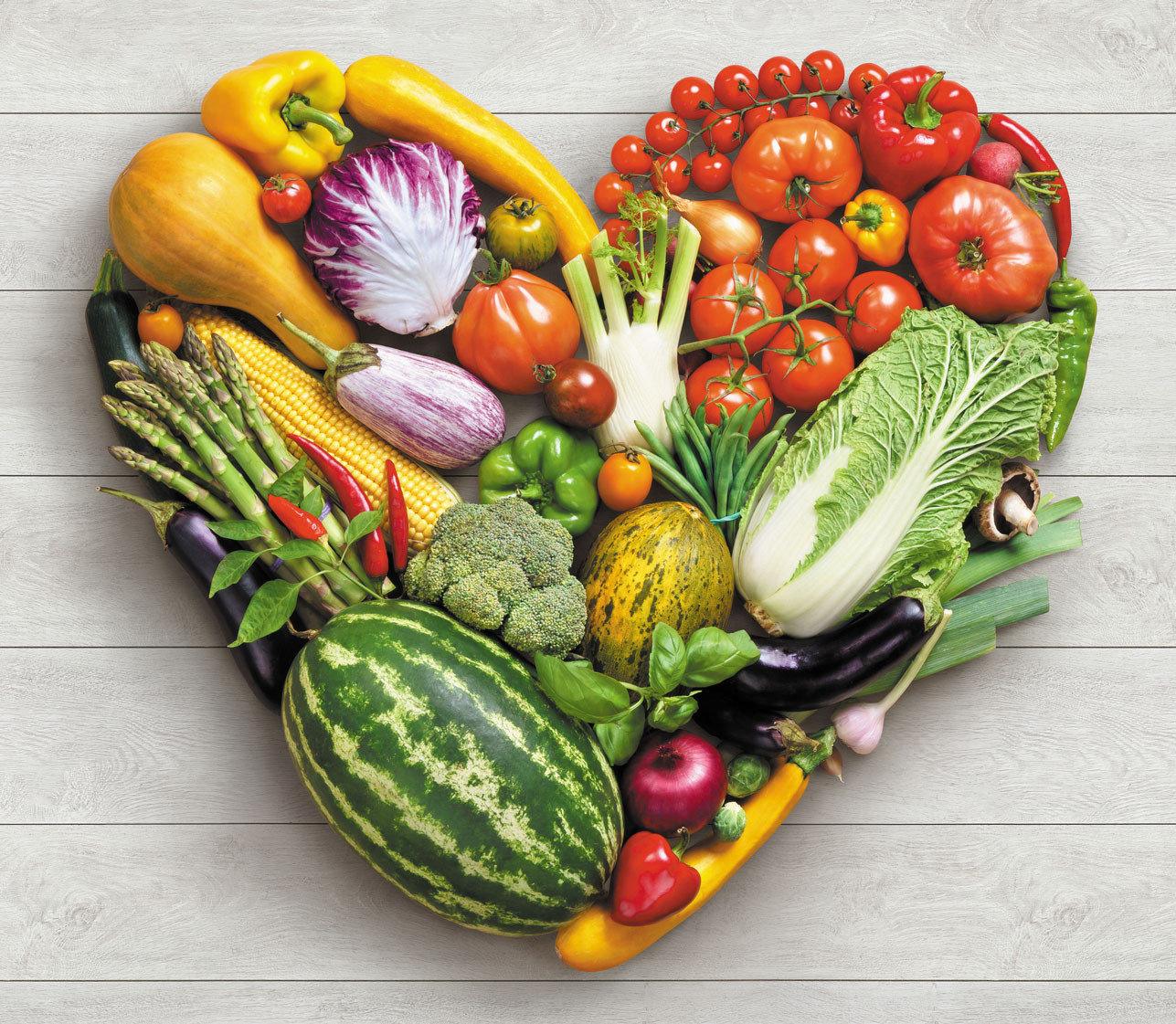Are These BBQ Sauces Really Plant-Based? We Investigated
Everything About Healthy Food: Advantages of Enjoying Plant Based Choices
The conversation bordering plant-based diet plans has actually obtained substantial focus recently. Lots of individuals are discovering the prospective health and wellness benefits, dietary benefits, and ecological effects associated with these dietary options. As people become much more aware of their food's impact on well-being and sustainability, concerns emerge about the functionalities of embracing such a way of life. What details adjustments can one anticipate, and how might these selections reshape not only individual health but likewise the planet's future?
Understanding Plant-Based Diet Regimens
Although several individuals connect plant-based diets primarily with vegetarianism or veganism, these diet regimens can encompass a wide variety of consuming patterns that prioritize entire, minimally processed plant foods. Such diet plans usually include fruits, veggies, entire grains, seeds, vegetables, and nuts, while removing or limiting pet items. This versatility allows people to tailor their dietary choices according to personal preferences and dietary needs. Some may adopt a mainly plant-based diet while still periodically consuming meat or dairy products, usually referred to as a flexitarian approach. The focus remains on including even more plant foods, which can result in a varied range of meals and tastes. Understanding these different analyses of plant-based eating is vital for appreciating its ease of access and charm in modern food culture.
Health Advantages of Plant-Based Foods
The health and wellness advantages of plant-based foods are substantial, supplying a nutrient thickness advantage that supports total well-being. Study shows that these foods can improve heart health and wellness and play a crucial duty in reliable weight management. By incorporating more plant-based alternatives, people might improve their dietary choices and advertise long-lasting wellness.
Nutrient Density Advantage
Nutrient density plays an essential function in the wellness advantages of plant-based foods, making them an engaging choice for those looking for a balanced diet regimen. Plant-based foods, such as fruits, veggies, beans, nuts, and whole grains, are frequently abundant in important vitamins, minerals, and anti-oxidants while being lower in calories. This high nutrient thickness enables people to take in less calories while still fulfilling their nutritional needs. Additionally, these foods are packed with dietary fiber, promoting digestive health and assisting in weight monitoring. By incorporating nutrient-dense plant-based choices, consumers can enhance their total health, support their immune systems, and decrease the danger of chronic illness. Ultimately, the nutrient thickness of plant-based foods underscores their importance in a health-conscious lifestyle.
Heart Wellness Enhancement

Weight Administration Assistance
Along with promoting heart health, a plant-based diet regimen can considerably assist in weight monitoring. This nutritional approach highlights entire foods such as fruits, vegetables, legumes, nuts, and whole grains, which are typically lower in calories and greater in fiber compared to animal-based items. The high fiber content helps enhance satiation, minimizing overall calorie intake. Plant-based diet plans are often rich in necessary nutrients while low in undesirable fats, making it simpler to keep a healthy weight. Study indicates that people who take on a plant-based way of living often tend to have reduced body mass indexes (BMIs) and experience more successful weight reduction compared to those who consume meat-heavy diet plans. Consequently, welcoming plant-based choices is a calculated option for reliable weight monitoring
Nutritional Value of Plant-Based Ingredients
Plant-based ingredients are rich in vital nutrients, using a varied array of vitamins, minerals, and antioxidants that add to total wellness. A comparison of protein resources discloses that while pet products are frequently seen as exceptional, many plant-based choices offer appropriate healthy protein and various other valuable compounds. Recognizing the dietary worth of these components can aid people make educated nutritional choices.
Important Nutrients in Plants
Nutrient-rich ingredients located in plants use a diverse range of necessary minerals and vitamins that contribute significantly to overall health and wellness. These components are abundant in vitamins A, C, and K, which support immune feature, vision, and blood clotting, specifically. On top of that, plants provide essential minerals such as magnesium, potassium, and calcium, crucial for heart health, muscle mass function, and bone strength. The presence of fiber in plant-based foods aids digestion and promotes a healthy gut microbiome. Antioxidants, located abundantly in veggies and fruits, help battle oxidative stress and lower swelling. Many plant foods are low in calories yet high in nutrients, making them an exceptional option for those seeking to maintain a healthy and balanced weight while guaranteeing suitable nutrient intake.

Contrasting Healthy Protein Resources
Healthy protein sources vary considerably in their dietary accounts, with plant-based components providing unique benefits. Unlike pet proteins, which frequently contain saturated fats and cholesterol, plant proteins often tend to be lower in these undesirable parts. Legumes, nuts, seeds, and whole grains are abundant in necessary amino acids, fiber, vitamins, and minerals. For example, lentils provide high protein material alongside considerable iron and folate, while quinoa is a full healthy official source protein, supplying all nine crucial amino acids. Furthermore, plant-based healthy proteins are commonly accompanied by anti-oxidants and phytochemicals that sustain general health and wellness. The change to plant-based healthy protein resources not only improves nutritional consumption however likewise aligns with lasting dietary practices, reducing environmental influence and advertising lasting wellness advantages.
Ecological Impact of Plant-Based Eating
As recognition of environment adjustment grows, many people are exploring sustainable dietary choices that can considerably decrease their environmental impact. Plant-based consuming has become a significant contributor to minimizing greenhouse gas discharges, which are primarily associated with livestock manufacturing. The cultivation of fruits, veggies, grains, and beans usually needs less resources, such as water and land, contrasted to pet farming. Furthermore, plant-based diets can lead to lowered deforestation, as less land is required for grazing animals or growing animal feed. By shifting towards plant-based choices, customers can support biodiversity and advertise healthier communities. Generally, accepting plant-based eating not just advantages individual health and wellness but likewise stands for an important step towards environmental sustainability and conservation efforts.
Conquering Common Misconceptions
While numerous individuals identify the benefits of a plant-based diet, numerous misconceptions often deter them from completely welcoming this lifestyle. An usual idea is that plant-based diets do not have enough protein; however, numerous plant sources, such as legumes, nuts, and tofu, give enough healthy protein. In addition, some assume that this diet plan is expensive, when as a matter of fact, staples like beans, rice, and seasonal veggies can be rather economical. One more misunderstanding is that plant-based eating is excessively limiting, whereas it actually provides a varied selection of flavors and foods. Lots of fret that a plant-based diet might lead to deficiencies, yet with appropriate preparation, people can obtain all needed nutrients, including minerals and vitamins, while delighting in a wide range of tasty meals. Large Tips for Transitioning to a Plant-Based Lifestyle
Making the change to a plant-based way of living can be an enhancing experience, though it usually calls for some guidance to navigate the preliminary modifications. Individuals are motivated to start slowly, including more fruits, veggies, vegetables, and whole grains into their meals while lowering meat and milk intake. Meal planning is vital; preparing a regular food selection can help ease the adjustment and prevent final undesirable selections. Exploring cooking approaches and new dishes can also keep and enhance the experience exhilaration concerning plant-based eating. Furthermore, signing up with support system or communities can offer motivation and share useful ideas. Staying educated about nutrition warranties well balanced dishes, preventing deficiencies while promoting a healthy, rewarding plant-based way of living.

Delicious Plant-Based Meal Ideas
Exploring tasty plant-based meal ideas can influence individuals to embrace a more see this site nourishing diet. One preferred alternative is a passionate quinoa salad, including cherry tomatoes, cucumber, and a vibrant lemon-tahini clothing. Another fave is a tasty lentil stew, packed with carrots, celery, and aromatic natural herbs, best for a comforting supper. For morning meal, over night oats made with almond milk, chia seeds, and topped with fresh berries provide a nourishing begin to the day. In addition, a vibrant vegetable stir-fry with tofu and a variety of colorful veggies can be a fast yet satisfying dish. Creamy avocado toast on whole-grain bread, sprayed with seasonings and seeds, uses a simple yet tasty treat. These meals display the variety and splendor of plant-based consuming.

Regularly Asked Questions
Can a Plant-Based Diet Give Sufficient Protein?
The question of whether a plant-based diet can supply adequate protein is typical. Various resources, including beans, nuts, seeds, and whole grains, can meet protein needs effectively, supporting a nutritious and well balanced diet regimen for individuals.
Are Plant-Based Diet Regimens Suitable for Children?
The suitability of his comment is here plant-based diet plans for youngsters depends on mindful planning. Appropriate nutrients should be ensured, including vitamins, minerals, and healthy proteins. With appropriate assistance, such diet regimens can support healthy and balanced development and advancement in children.
How Do I Eat Out on a Plant-Based Diet plan?
Eating in restaurants on a plant-based diet plan includes seeking dining establishments with varied menus, requesting alterations, and checking out vegan-friendly alternatives. Planning in advance and connecting nutritional choices can boost the eating experience while maintaining nutritional options.
What Are Typical Irritants in Plant-Based Foods?
Typical allergens in plant-based foods consist of soy, gluten, nuts, and seeds - BBQ Sauces. Individuals complying with a plant-based diet plan must recognize these allergens and check out labels very carefully to stay clear of negative reactions and guarantee safe consumption
Can Plant-Based Diets Assist With Weight Reduction?
Study indicates that embracing a plant-based diet regimen might promote fat burning as a result of its normally lower calorie thickness and higher fiber material. This mix can improve satiation, aiding people handle their caloric intake effectively. Numerous people link plant-based diet plans mostly with vegetarianism or veganism, these diet regimens can include a wide range of consuming patterns that prioritize whole, minimally refined plant foods. Nutrient thickness plays a crucial duty in the health benefits of plant-based foods, making them a compelling choice for those looking for a balanced diet. Plant-based diet plans have actually been shown to considerably improve heart health, as they often contain components that support cardiovascular function. In addition to promoting heart health and wellness, a plant-based diet plan can significantly aid in weight administration. A common idea is that plant-based diet regimens lack enough protein; however, many plant resources, such as vegetables, nuts, and tofu, provide ample healthy protein.